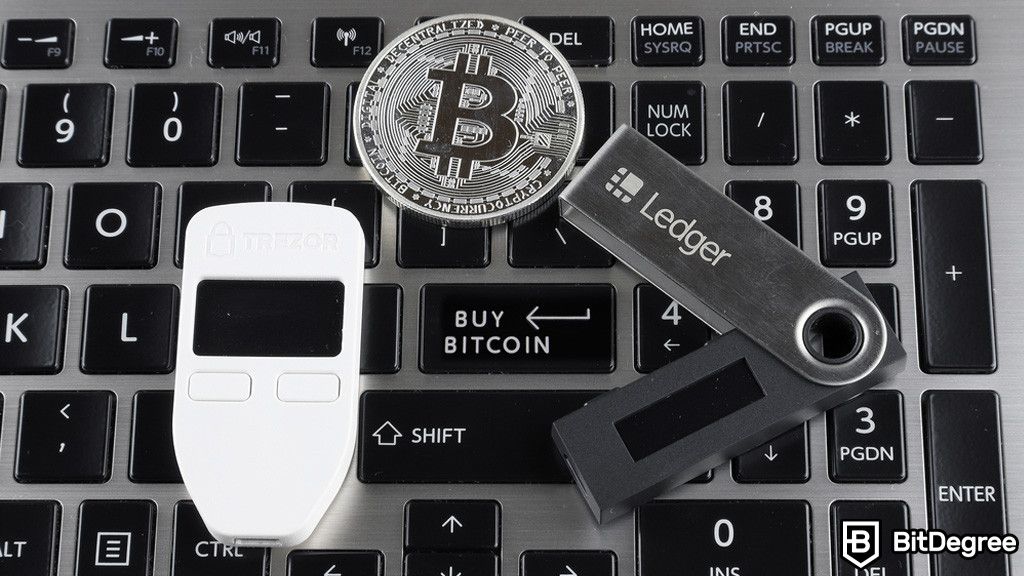Key Takeaways
- Hard tokens like Ledger provide superior offline security, ideal for long-term crypto storage.
- Soft tokens such as Binance Web3 Wallet and Coinbase Wallet offer convenient, cost-effective solutions for everyday transactions.
- Combining hard and soft tokens enhances security by leveraging both methods' strengths.
Free Airdrop Season 7 is LIVE! Answer fun questions or do simple tasks to earn rewards from the $30K BitDegree prize pool. Participate Now ! 🔥
When it comes to keeping your digital assets secure, the debate often boils down to hard token VS soft token. You’ve probably heard of popular hard tokens like Ledger or soft tokens like the Binance Web3 Wallet and Coinbase Wallet.
But which one should you trust more? This article dives into the nitty-gritty of hard token and soft token options, unraveling their definitions, examples, and pros and cons of each. Ultimately, I’ll argue that the answer isn’t a straightforward one. Instead, in the crypto ecosystem, it's becoming clear that a combination of both might offer the best protection.
So, what's better for soft token VS hard token security? Is one superior, or do they work best together? Stick around as we explore how these tokens work, their strengths and weaknesses, and why blending both methods could be the future of securing your digital accounts and assets.

Did you know?
Subscribe - We publish new crypto explainer videos every week!
What Is Tether? (USDT SIMPLY Explained With Animations)
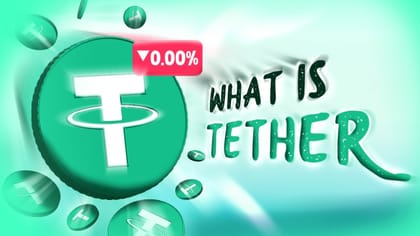

Table of Contents
- 1. Hard Token VS Soft Token: Understanding Hard Tokens
- 1.1. How Hard Tokens Work
- 1.2. Examples of Hard Tokens
- 1.3. Use Cases for Hard Tokens
- 1.4. Advantages of Hard Tokens
- 1.5. Disadvantages of Hard Tokens
- 2. Understanding Soft Tokens
- 2.1. How Soft Tokens Work
- 2.2. Examples of Soft Tokens
- 2.3. Use Cases for Soft Tokens
- 2.4. Advantages of Soft Tokens
- 2.5. Disadvantages of Soft Tokens
- 3. Hard Tokens VS Soft Tokens in the Crypto Ecosystem
- 3.1. Hard Tokens in Crypto
- 3.2. Soft Tokens in Crypto
- 3.3. Comparing Security Implications
- 4. Combining Hard and Soft Tokens for Optimal Security
- 4.1. The Hybrid Approach
- 4.2. Benefits of Combining Hard and Soft Tokens
- 4.3. Implementation Strategies
- 5. Conclusion
Hard Token VS Soft Token: Understanding Hard Tokens
Let's start with the basics: What exactly is a hard token? In the simplest terms, a hard token is a physical device used to grant access to a network or system. Hard tokens are tangible items that you can hold in your hand. These devices generate one-time passwords (OTPs) or use cryptographic methods to ensure secure authentication.
Latest Deal Active Right Now:Valentine's Day offer: save up to 50% on ALL best-selling Trezor bundles! Don't miss this sale & secure a huge discount now.
How Hard Tokens Work
Hard tokens work by generating a unique code, usually every 30 seconds, that users must enter to gain access to a protected resource. This code is often synchronized with a server, adding an extra layer of security. For instance, when you attempt to log into your account, the server checks the code from your hard token against its own internal clock and algorithm to verify authenticity.
The security advantage here is significant. Because hard tokens are not connected to the internet, they are less vulnerable to hacking attempts compared to their software-based counterparts. This feature makes them a crucial component in the ongoing hard token VS soft token debate, especially when discussing soft token VS hard token security.
Examples of Hard Tokens
There is a wide range of hard token products in the market today, ranging from Internet banking tokens to hardware wallets that store your crypto investment. Here are three of the most notable examples to give you a better idea:
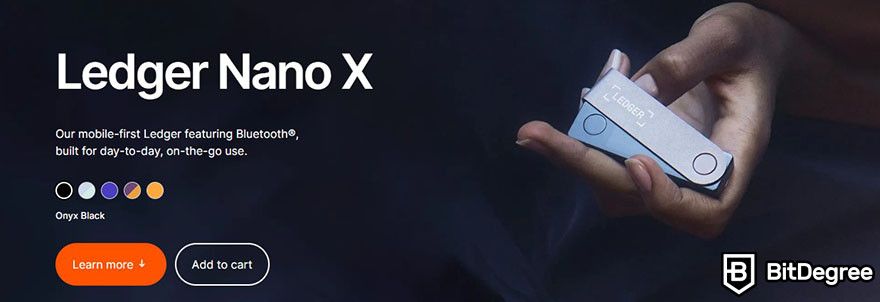
- Ledger Nano X: Known for its robust security, Ledger Nano X is a widely used hardware wallet in the cryptocurrency world. It stores your private keys offline, significantly reducing the risk of cyberattacks.
- YubiKey: This versatile device is used for securing everything from email accounts to corporate networks. YubiKey supports multiple authentication protocols, making it a favorite among tech-savvy users.
- RSA SecurID: Often used in corporate environments, RSA SecurID generates OTPs that employees use to access sensitive information systems. It’s a staple in sectors where security is paramount.
While hardware security keys like YubiKey and RSA SecurID are more for general digital security purposes, Ledger's hardware wallets are specifically tailored for crypto investors because they mainly store your crypto wallet's private key.
Use Cases for Hard Tokens
Hard tokens have found their place in various industries and scenarios where security cannot be compromised. Here are some notable use cases:
- Corporate security: Companies dealing with sensitive data, such as financial institutions or tech firms, often use hard tokens to ensure that only authorized personnel can access their systems. The RSA SecurID is a prime example of a hard token used in these environments.
- Cryptocurrency storage: In the crypto world, hard tokens like Ledger and SafePal are essential for securing digital assets. Given the increasing number of hacking incidents, storing private keys offline is prudent.
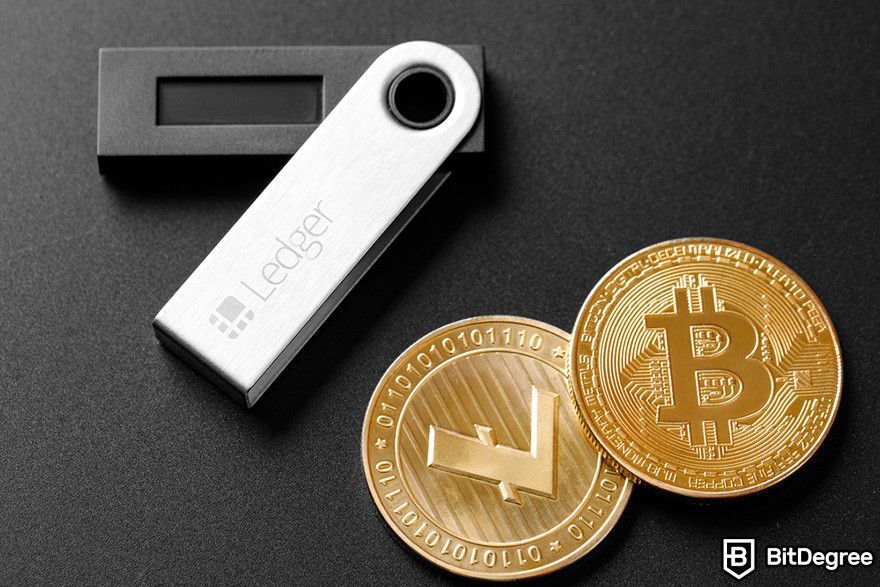
- Personal security: On a more personal level, individuals can use hard tokens like YubiKey to secure their email accounts, social media, and even their computers. With the growing concern over privacy and data breaches, more people are turning to hard tokens for added peace of mind.
- Government and military: These sectors require the highest levels of security due to the nature of the information they handle. Hard tokens are used extensively to protect sensitive data and ensure that only authorized users can gain access.
Hard tokens are a vital component of modern security systems, providing an extra layer of protection that is hard to beat. Whether it's securing your cryptocurrency, protecting corporate data, or safeguarding personal information, hard tokens offer a reliable solution. As we continue to explore the best ways to secure our digital lives, the hard token VS soft token discussion remains a pivotal part of the conversation.
Advantages of Hard Tokens
When it comes to the hard token VS soft token debate, hard tokens have some distinct advantages that make them a popular choice for securing digital assets and sensitive information.
- Enhanced security: One of the biggest advantages of hard tokens is their superior security. Because they are physical devices and operate offline, they are immune to many online threats such as hacking, phishing, and malware attacks. This makes them a crucial part of the soft token VS hard token security conversation.
- Physical possession: With a hard token, you have a tangible item that you can hold in your hand. This physical possession adds an extra layer of security, as it is much harder for a hacker to gain access to a physical device compared to a digital one.
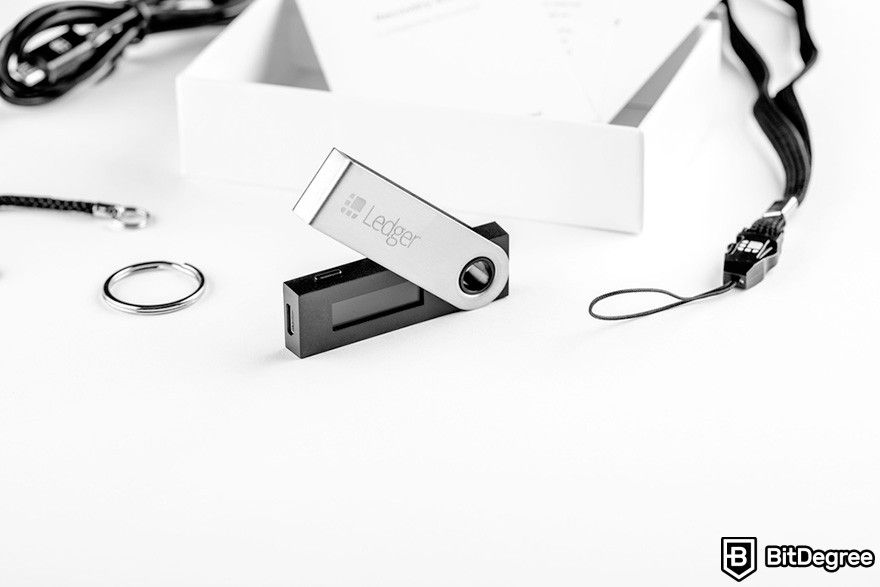
- Independence from the Internet: Hard tokens do not rely on an Internet connection to function. This independence makes them more reliable in environments where internet connectivity is unstable or where security risks are high.
- Long-lasting: Hard tokens are generally durable and can last for many years. Devices like the Ledger hardware wallet and YubiKey are designed to withstand physical wear and tear, ensuring that they provide long-term security.
- Versatility: Some hard tokens, like YubiKey, support multiple authentication protocols, making them versatile tools for securing a wide range of services and applications.

Did you know?
Subscribe - We publish new crypto explainer videos every week!
How to Trade NFTs Safely? (Animated Explainer For Beginners)


Disadvantages of Hard Tokens
Despite their many benefits, hard tokens also have some drawbacks that can make them less suitable in certain situations. Here are some of the possible disadvantages of using a hard token for security:
- Inconvenience: Carrying around a physical device can be inconvenient, especially if you need to use it frequently. Losing a hard token or forgetting it at home can also pose significant problems, potentially locking you out of your accounts.
- Cost: One of the primary disadvantages of hard tokens is their cost. Physical devices can be expensive to produce and purchase, which can be a significant barrier for individuals and small businesses. This cost factor often comes up in the hard token VS soft token debate.
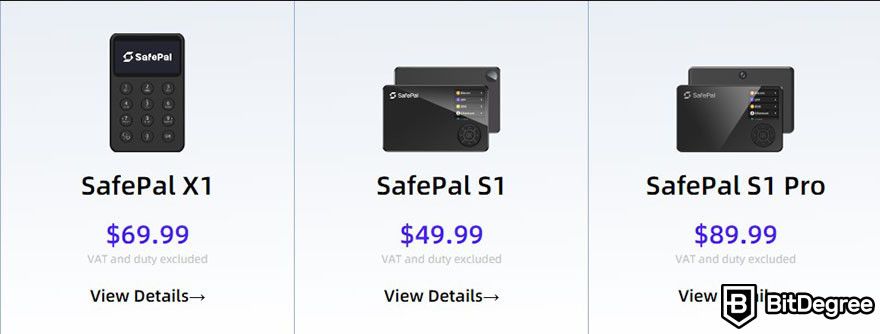
- Limited availability: Hard tokens need to be physically distributed, which can be a logistical challenge. This limitation can make it difficult to scale their use in large organizations or among global user bases.
- Risk of loss or damage: If a hard token is lost, stolen, or damaged, recovering access to your accounts can be a complex and time-consuming process. This risk contrasts with the more easily replaceable nature of soft tokens.
Let's be real, most people value convenience more than anything these days. This is probably why hard tokens are not as common as they should be, especially for the general public, despite their ability to provide robust protection for your accounts and assets.
Understanding Soft Tokens
Now that we've covered hard tokens, let's dive into the world of soft tokens. Unlike hard tokens, which are physical devices, soft tokens are software-based. These tokens reside on your mobile device, computer, or any internet-connected gadget. They provide a convenient way to authenticate users and secure digital transactions without the need for additional hardware.
How Soft Tokens Work
Soft tokens work by generating a unique, time-sensitive code, much like hard tokens. However, instead of a physical device, this code is generated by a software application. When you log into an account or service, you’ll need to enter this code to verify your identity.
Soft tokens typically use algorithms that sync with a server to ensure the code is valid. The process is quite similar to hard tokens, but because it's all handled through software, it’s more convenient and flexible, but also more susceptible to cyber threats. This brings us to the critical discussion of soft token VS hard token security. While soft tokens are easier to deploy and use, they require robust security measures to protect against malware and other online threats.
Examples of Soft Tokens
There are several popular examples of soft tokens that you might already be familiar with:
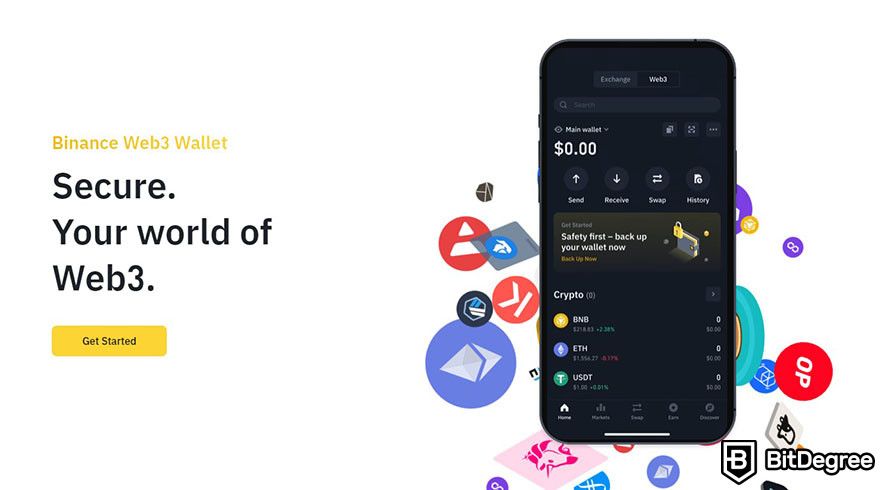
- Binance Web3 Wallet: This wallet integrates soft token authentication to secure your cryptocurrency transactions. It’s a user-friendly option that makes managing your crypto assets straightforward and secure.
- Coinbase Wallet: Another prominent example, Coinbase Wallet, uses soft token technology to protect your digital assets and ensure safe transactions. It’s designed for both beginners and advanced users, providing an easy-to-use interface with strong security features.
- Google Authenticator: A widely used soft token application, Google Authenticator generates time-based OTPs for various services. It’s an essential tool for enhancing the security of your online accounts.
Use Cases for Soft Tokens
Soft tokens have a wide range of applications, making them a versatile choice for many different scenarios. Here are some common use cases:
- Cryptocurrency transactions: Soft tokens like those in the Binance Web3 Wallet and Coinbase Wallet are crucial for securing crypto transactions. They provide a convenient way to protect your digital assets without needing physical devices.
- Online banking: Many banks use soft tokens to enhance the security of online banking services. Instead of relying solely on passwords, customers receive a time-sensitive code via a mobile app to complete transactions.

- Two-factor authentication (2FA): Soft tokens are a staple in 2FA, adding an extra layer of security to various online services. Applications like Google Authenticator are commonly used to protect accounts on platforms like Gmail, Facebook, and more.
- Enterprise security: Companies often deploy soft tokens to secure employee access to sensitive information and systems. This approach ensures that even if passwords are compromised, the additional layer of authentication keeps unauthorized users at bay.
Advantages of Soft Tokens
In the hard token VS soft token debate, soft tokens offer several appealing benefits that make them a popular choice for many users. Here are some of them:
- Cost-effective: One of the most significant advantages of soft tokens is their cost-effectiveness. Unlike hard tokens, which require purchasing physical devices, soft tokens are typically free or very inexpensive. This makes them an accessible option for individuals and small businesses alike.
- Convenience: Soft tokens are incredibly convenient. Since they reside on devices you already own, like smartphones or computers, there's no need to carry around an extra piece of hardware. This convenience is a major factor in the ongoing hard token VS soft token discussion.
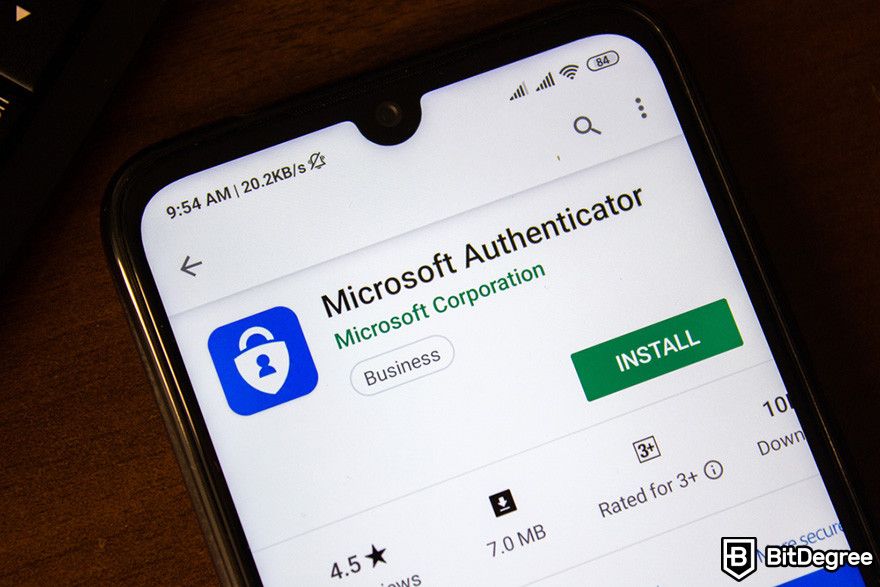
- Ease of deployment: Deploying soft tokens is straightforward. They can be distributed digitally, reducing logistical challenges associated with physical tokens. Users can download an app or install software quickly, making the setup process simple and fast.
- User-friendly: Soft tokens offer a user-friendly experience. Applications like Google Authenticator, Binance Web3 Wallet, and Coinbase Wallet provide intuitive interfaces that make generating and entering codes easy for even non-tech-savvy users.
- Flexibility: Soft tokens are versatile and can be used across multiple platforms and devices. Whether you're securing an email account, online banking, or a cryptocurrency wallet, soft tokens provide a flexible solution that adapts to various needs.
If you notice, almost all of your online accounts, like social media, email, or cloud storage implement some sort of software-based security token as a protection measure. This is because the main strength of soft tokens is ease of use, and as I mentioned earlier, people love convenience even when it comes with several potential disadvantages.
Disadvantages of Soft Tokens
Soft tokens are not without their drawbacks. There are some significant disadvantages that need to be considered, particularly when discussing soft token VS hard token security. These include:
- Dependency on devices: Soft tokens are tied to the devices they reside on. If your smartphone or computer is lost, stolen, or damaged, you could lose access to your authentication codes. This dependency can create significant challenges, especially if you don’t have a backup.
- Susceptibility to cyber threats: One of the primary disadvantages of soft tokens is their vulnerability to cyber threats. Since they rely on software and internet connectivity, they can be targeted by malware, phishing attacks, and other forms of hacking. This is a crucial point in the soft token VS hard token security debate.

- Internet connectivity: Soft tokens often require an internet connection to function correctly. This reliance can be a disadvantage in environments with unstable or no internet access, making them less reliable in certain situations.
- Battery life and device issues: Because soft tokens are hosted on electronic devices, they are subject to issues like battery life and software glitches. If your device runs out of battery or encounters a technical problem, you could be locked out of your accounts temporarily.
- Potential for exploitation: Cybercriminals are continually developing new methods to exploit software vulnerabilities. Soft tokens, being software-based, are at a higher risk of being compromised if the software is not regularly updated or if it contains flaws.
In the ongoing hard token VS soft token debate, it's clear that each has its unique advantages and drawbacks. Hard tokens offer a level of security that’s difficult to match, given their offline nature. However, they can be cumbersome and more expensive. On the flip side, soft tokens are cost-effective and convenient but require vigilant security practices to mitigate risks.
Hard Tokens VS Soft Tokens in the Crypto Ecosystem
Navigating the world of cryptocurrencies brings us to a critical juncture in the hard tokens VS soft tokens debate. Both types of tokens play significant roles, but their applications, benefits, and drawbacks vary within the crypto ecosystem. Let's dive into how each type fares and why a combination might be the best approach.
Hard Tokens in Crypto
Hard tokens, such as Ledger and Trezor hardware wallets, have become synonymous with high security in the crypto space. These physical devices store private keys offline, making them immune to online threats like hacking and malware. Here’s why they stand out:
- Enhanced security: The primary advantage of hard tokens is their offline nature. By keeping private keys disconnected from the internet, hard tokens offer robust protection against cyberattacks. This makes them a crucial part of the soft token VS hard token security discussion. For example, a hardware wallet like Ledger Nano S Plus generates and stores private keys in an isolated environment, preventing hackers from gaining access even if the connected computer is compromised. This isolation ensures that transactions can only be signed within the device, adding an extra layer of security that is not present with online or software-based solutions.
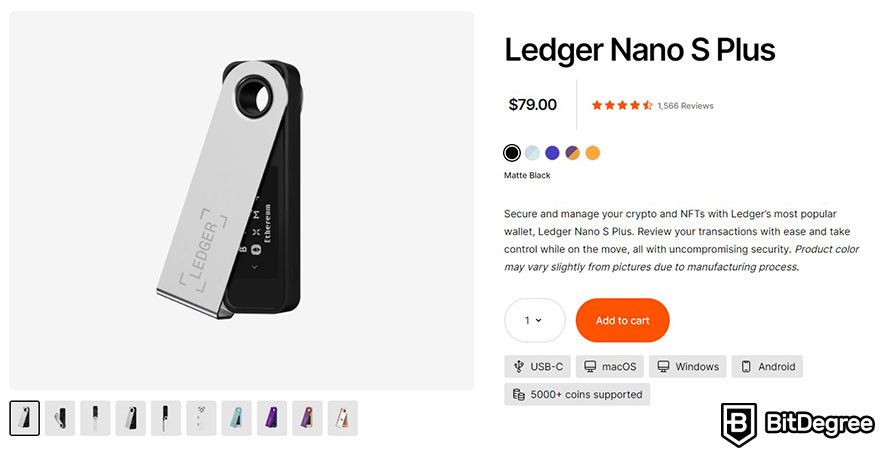
- Physical possession: Owning a hard token means you have a tangible device to safeguard. This physical possession adds an extra layer of security because it’s much harder for a hacker to steal or tamper with a physical object. For instance, a SafePal hardware wallet must be physically connected to a device to perform any transaction, meaning that a potential attacker would need to gain physical access to the token. This requirement significantly reduces the risk of remote attacks, making hard tokens a highly secure option for managing cryptocurrency assets.
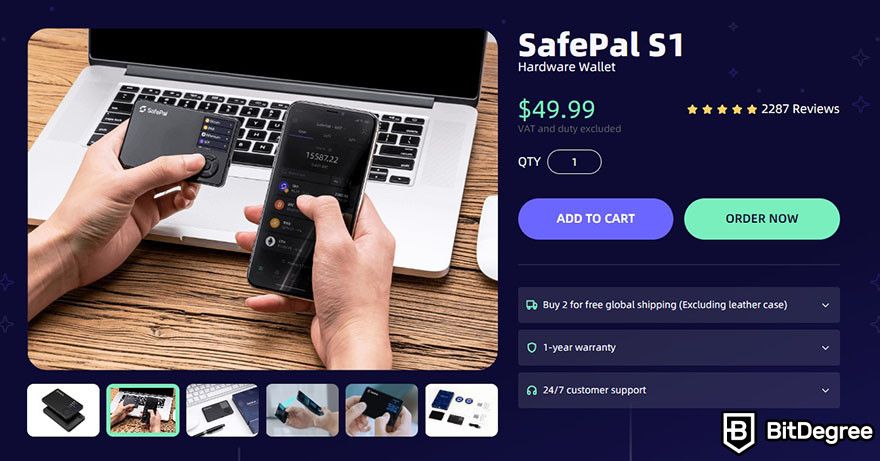
- Long-term storage: Hard tokens are ideal for the long-term storage of significant cryptocurrency holdings. Investors looking to hold assets over an extended period without frequent transactions often prefer hard tokens for their superior security. These devices also support backup and recovery features, allowing users to restore their assets in case the hardware wallet is lost or damaged. This makes hard tokens a preferred choice for "HODLers" who aim to store their investments securely over the long term without regular access needs.
But these advantages also come with some drawbacks. For instance, hard tokens can be pricey for some people, and their physical nature means they can be lost, stolen, or damaged. Plus, they can be less convenient for frequent transactions, adding a layer of complexity for everyday users.
Soft Tokens in Crypto
On the other hand, soft tokens like those in the Binance Web3 Wallet and Coinbase Wallet provide a more convenient and cost-effective solution for crypto enthusiasts. Here’s how they fit into the ecosystem:
- Ease of use: Soft tokens are software-based, residing on devices you already use, like smartphones or computers. This convenience makes them ideal for everyday transactions and quick access to digital assets. For example, the Binance Web3 Wallet can be easily accessed through a mobile app, allowing users to manage their cryptocurrencies, execute trades, and interact with decentralized applications (dApps) on the go. Since there's no need for an additional physical device, users can quickly and effortlessly authenticate transactions, making soft tokens perfect for routine activities where speed and convenience are crucial.

- Cost-effective: Unlike hard tokens, which require purchasing a physical device, soft tokens are usually free or very inexpensive. This accessibility is a significant advantage, especially for new users and small-scale investors. Take the Coinbase Wallet for example. It offers a free and user-friendly platform for managing digital assets, which can be particularly beneficial for those just entering the cryptocurrency market or those with limited investment capital. The low cost of soft tokens helps democratize access to enhanced security measures, making it easier for a broader audience to protect their assets.
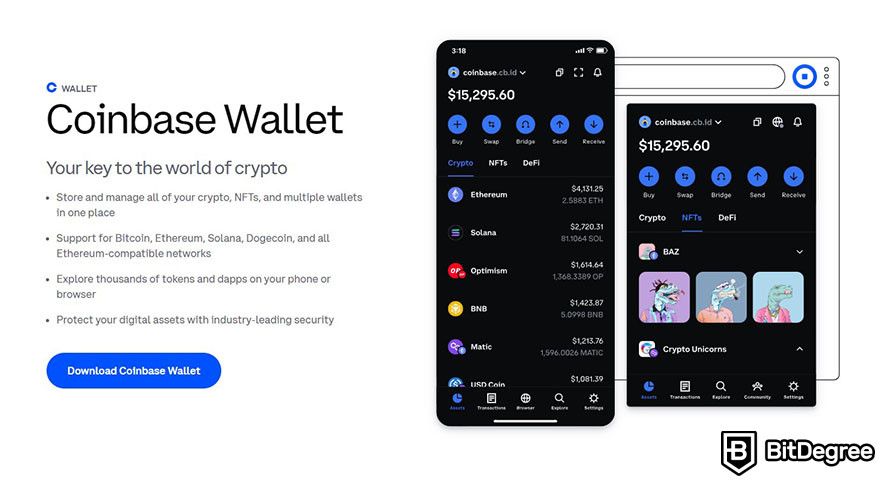
- Flexibility: Soft tokens offer flexibility, as they can be used across multiple devices and platforms. This versatility makes them a popular choice for users who need to manage their crypto assets on the go. Additionally, many soft token solutions integrate seamlessly with other financial and security apps, providing a cohesive and adaptable security ecosystem.
However, soft tokens are more vulnerable to online threats. Their reliance on internet-connected devices makes them susceptible to hacking, malware, and phishing attacks. It is found that malware caused 87% of the total cybersecurity attacks that caused financial loss[1], underlining the risks associated with software-based tokens. This is a critical point in the hard tokens VS soft tokens debate, especially when discussing soft token VS hard token security.
Comparing Security Implications
When it comes to soft token VS hard token security, the differences are stark. Hard tokens offer unparalleled security due to their offline nature, making them the go-to choice for high-stakes storage. Soft tokens, while more convenient, require robust security practices to mitigate their inherent risks.
User preferences in the crypto ecosystem often boil down to the balance between security and convenience. Hardcore crypto investors and those with significant holdings tend to prefer hard tokens for their enhanced security. Meanwhile, everyday users and those new to crypto might lean towards soft tokens for their ease of use and lower cost.
Interestingly, the trend is shifting towards a hybrid approach. Many digital providers and wallets are beginning to integrate both hard and soft token features, offering users the best of both worlds. For instance, some platforms like Binance allow users to link their hard token devices with soft token apps, creating a seamless yet secure user experience.
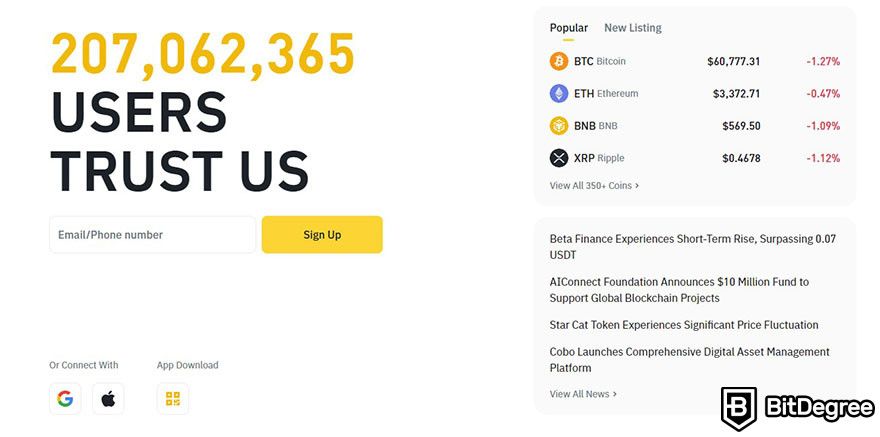
So, in this hard tokens VS soft tokens debate, it’s becoming clear that these two methods are not mutually exclusive. Instead, they can complement each other to provide a comprehensive security solution. By leveraging the strengths of both hard and soft tokens, users can achieve a balance between security and convenience that suits their individual needs. As the crypto ecosystem continues to evolve, embracing a combination of hard and soft tokens might be the key to securing digital assets effectively. In the next section, I’ll explore how integrating both methods can enhance overall security and provide practical strategies for implementation.
Combining Hard and Soft Tokens for Optimal Security
Previously, we've seen that the hard tokens VS soft tokens debate has highlighted the strengths and weaknesses of each method. However, a growing consensus suggests that combining both hard and soft tokens can offer optimal security. Let's explore how this hybrid approach works and why it might be the best strategy for protecting digital assets.
The Hybrid Approach
Combining hard and soft tokens leverages the strengths of both methods to create a robust security framework. Hard tokens, with their offline capabilities and physical presence, offer unparalleled security against online threats. Meanwhile, soft tokens provide convenience and flexibility, making it easier for users to access their accounts from multiple devices. Here is how it works:
- Dual authentication: By using both a hard token and a soft token, users can set up dual authentication. For instance, a user might need to generate an OTP with a hard token and then confirm it through a soft token app on their smartphone. This layered security approach significantly reduces the risk of unauthorized access.
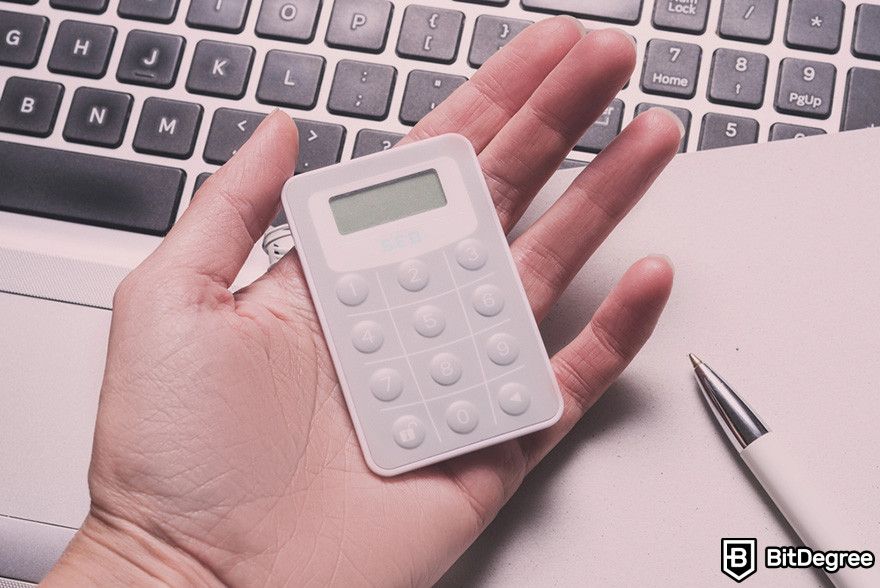
- Redundancy: In case one method fails or is compromised, the other can act as a backup. For example, if a user loses their hard token, they can still access their accounts using their soft token, and vice versa. This redundancy enhances reliability and ensures continuous protection.
- Contextual use: Users can choose which token to use based on the context. For high-stakes transactions, a hard token might be preferred for its superior security. For everyday access, a soft token could be more convenient. This flexibility allows users to tailor their security measures to their specific needs.
Benefits of Combining Hard and Soft Tokens
Combining the strengths of both methods will also give us more benefits, here are three of the most notable ones:
- Enhanced security: Combining both tokens addresses the vulnerabilities inherent in each method. Using multiple forms of authentication, including hardware and software tokens, provides a higher level of security compared to single-method approaches.
- User convenience: Users benefit from the flexibility of soft tokens while maintaining the high security of hard tokens. Methods like MFA are expected to be utilized for human-to-everything interactions by enabling fast, user-friendly, and reliable authentication when accessing a service[2].
- Scalability: For organizations, implementing a hybrid approach can be more scalable. They can provide hard tokens to employees handling sensitive information and soft tokens for general access, creating a layered security environment.

- User-friendly design
- Robust security
- Long battery life

- A brand-new design
- Industry-leading security
- Coin, token and NFT storage

- Supports over 7,000 crypto assets
- Easy navigation
- Open-source
Implementation Strategies
So how should we implement the hybrid method when it comes to securing our crypto investments? Here are three of the main steps the stakeholders can take to utilize hard tokens and soft tokens and increase the overall security of this industry:
- Integrated platforms: Platforms like Binance and Coinbase are starting to offer integrated solutions that support both hard and soft tokens. These platforms provide a seamless user experience, allowing for easy switching between authentication methods.
- User education: Educating users about the benefits and usage of both tokens is crucial. Clear guidelines on when and how to use each token can help maximize security and convenience.
- Regular updates: Ensuring that both hard and soft tokens are regularly updated to address new security threats is essential. This includes software updates for soft tokens and firmware updates for hard tokens. This hybrid approach is particularly relevant in the crypto ecosystem, where the stakes are high and the threats are ever-present.
I know that it is easier said than done, as the crypto ecosystem keeps growing, I believe that the best approach is to utilize both methods to get the balance of optimal security and convenience.
Conclusion
In the ongoing hard token VS soft token debate, it's clear that both methods have unique strengths and weaknesses. Hard tokens, like the Ledger hardware wallets, provide robust security for long-term storage by keeping private keys offline. On the other hand, soft tokens, such as the Binance Web3 Wallet and Coinbase Wallet, offer unparalleled convenience and flexibility, making them ideal for everyday transactions and quick access to digital assets.
The key takeaway from our exploration of hard tokens VS soft tokens is that these methods are not mutually exclusive. In fact, combining them can offer the best of both worlds. By leveraging the superior security of hard tokens alongside the convenience of soft tokens, users can achieve optimal protection for their digital assets.
As the crypto ecosystem continues to evolve, adopting a hybrid approach that integrates both hard and soft tokens can provide a comprehensive and adaptive security strategy. This way, users can enjoy the flexibility and accessibility of soft tokens while relying on the enhanced security of hard tokens when needed. By understanding and utilizing the strengths of both types of tokens, you can better protect your digital assets and navigate the complex landscape of digital security.
The content published on this website is not aimed to give any kind of financial, investment, trading, or any other form of advice. BitDegree.org does not endorse or suggest you to buy, sell or hold any kind of cryptocurrency. Before making financial investment decisions, do consult your financial advisor.
Scientific References
1. Ashawa M., Morris S.: Analysis of Mobile Malware: A Systematic Review of Evolution and Infection Strategies;
2. Ometov A., Bezzateev S., Mäkitalo N., et al: Multi-Factor Authentication: A Survey.

